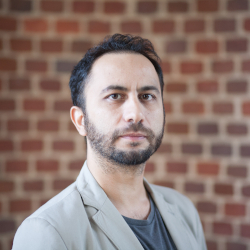
Humanities, New York University Shanghai
Adjustment, Mental Hygiene, and Child Study: The Advent of the Personality and Culture Perspective in American Social Science
This research project aims to reconstruct the rise of a psychosocial perspective on personality development in American social science from its pre-scientific origins in Antebellum debates about delinquency, heredity, and degeneracy to its elaboration into a systematic knowledge field within the interwar research initiatives of the Social Science Research Council (SSRC) and the National Research Council (NRC). Drawing on published and archival sources, it will examine the interrelationships among the dominant discourses of the period, such as penal theory, biology, sociology, ethnology, psychology, psychiatry, and eugenics, as well as the institutional frameworks developed to apply these knowledges to varied practical contexts, such as the creation of child guidance clinics to prevent juvenile delinquency and character “maladjustment,” the establishment of training schools for delinquent and “feebleminded” children, the administration of intelligence and personality tests to immigrant and “racial” populations, and the widespread adoption of forced sterilization statutes.